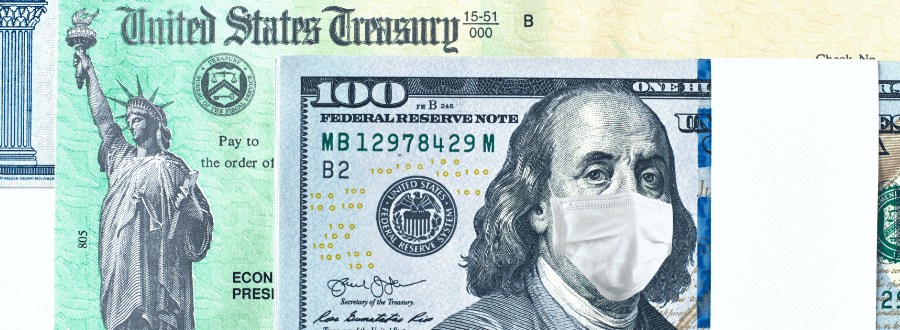Key Points
- Payroll tax payments over your work-life determine your Social Security retirement benefits.
- Periods of unemployment could lower Social Security payments in retirement.
- Applying for benefits before full retirement will permanently lower your monthly Social Security payment.

Before the coronavirus hit, there was talk about Social Security running out of money. In 2019, experts predicted the fund would only last until 2035 at current payout levels. 2020 was the first year the Social Security Administration paid more than it brought in through payroll taxes and interest, which would begin to deplete the Social Security Trust Fund.
Then COVID-19 decimated the economy and exasperated the Social Security crisis.
Now many worry they cannot count on Social Security in retirement. With 40.2% of seniors relying solely on Social Security payments to meet income needs, the program’s stability remains critical.
What does the Social Security crisis mean for you, and how will it impact your ability to collect benefits?
How Social Security Works?
Social Security relies on contributions from today’s workers to pay the benefits of today’s retirees. Starting in 2010, the fund paid out more in benefits than it received in payroll taxes. However, the interest gained on the trust fund balance covered payouts until 2020, when it began to tap into the trust fund principal. From now on, the trust fund balance will fall each year if Congress does not make changes to the Social Security program.
The problem is that number of retirees is rising faster than the number of people entering the workforce, creating an annual deficit that will rapidly deplete the Social Security Trust Fund. COVID-19 complicated the shortfall because it created high unemployment levels, and unemployed workers do not pay Social Security taxes.
COVID-19’s Impact on Social Security
Lower payroll taxes reduced Social Security payments. High rates of unemployment mean less money paid in Social Security taxes. The pandemic put over 30 million people out of work within 90 days in the spring of 2020. At the end of the year, the US unemployment rate stood at 6.7%, nearly double the 3.5% unemployment rate held at the end of 2019.
Social Security payments remain constant even when there is a vast reduction in contributions. Even if short lived, high unemployment impacts the pace at which payouts will deplete the Social Security Trust fund.
Lower Lifetime Earnings
Unemployment also impacts your contribution levels, which ultimately determine how much you will receive in retirement.
The retirement payout considers your 35 highest-earning years. When unemployment is part of your 35-year work history, it could permanently lower your benefit. You could mitigate the impact by working longer to offset one or more lower-earning years.
Taking Early Retirement
Layoffs during COVID-19 also resulted in early retirement for many workers. Collecting Social Security payments before you reach your full retirement age will permanently reduce benefits, which could factor into whether you retire or continue to work.
Planning for Your Retirement
The amount you hope to receive in Social Security will affect your retirement planning strategies. Consider how you would manage if you only received 75% of today’s anticipated benefits. How would that impact your planning?
You can reduce your reliance on Social Security benefits by building 401K and IRA retirement funds. Another strategy is to lower your cost of living by eliminating debt during your working years. If you find you do not have any money to contribute to your retirement needs, you may be facing a financial hardship that you can address today to improve your financial outlook in retirement.
You might qualify to eliminate current credit card or medical debt, paying less than the full amount you owe. Becoming free of this high-interest dent could give you more money to plan for your retirement and reduce your dependency on Social Security payments.
